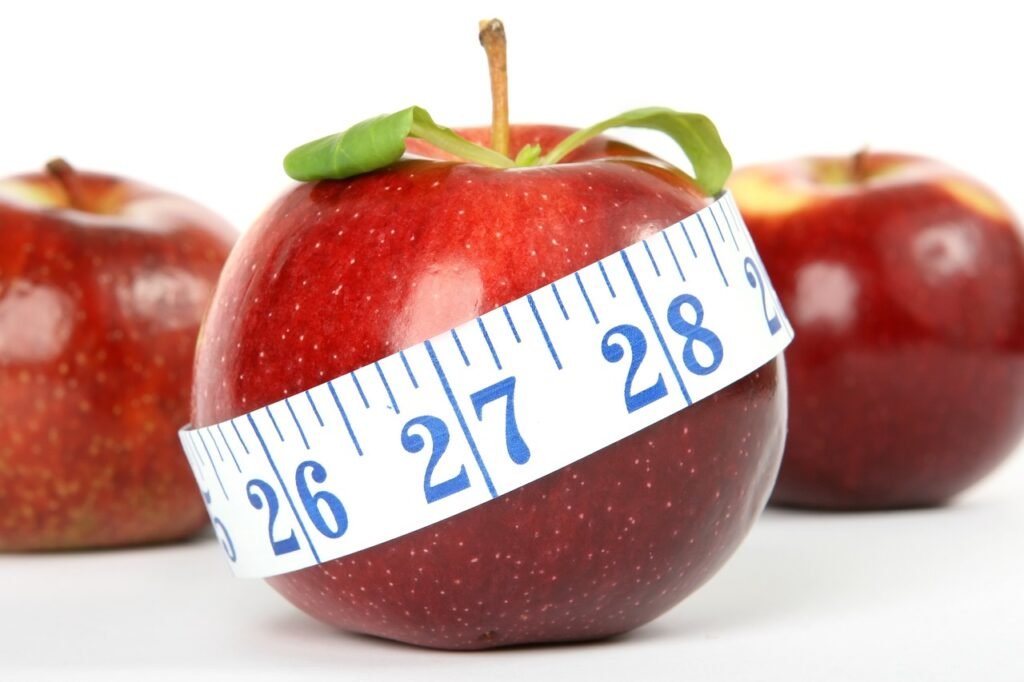Loss Weight_in_7 Days effectively requires a strategic approach and a clear understanding of what works best for your body. Achieving and maintaining weight loss can be challenging, but with the right strategies and awareness of common pitfalls, you can set yourself up for success. In this blog post, we’ll explore key insights into effective weight loss, highlight common mistakes to avoid, and provide actionable tips to help you stay on track. Whether you’re just starting your journey or looking to refine your approach, this guide will equip you with the knowledge needed to support your weight loss efforts and achieve lasting results.
Understanding Weight Loss
Losing weight can seem like a complex process, but at its core, it’s about creating a calorie deficit. This means consuming fewer calories than your body needs to maintain its current weight, forcing your body to use stored fat for energy. However, successful and sustainable weight loss involves more than just cutting calories—it’s about understanding the roles of metabolism, diet, and exercise in the process.
The Role of Metabolism in Weight Loss
Metabolism is the process by which your body converts what you eat and drink into energy. Even at rest, your body needs energy for essential functions like breathing, circulating blood, and repairing cells. The number of calories your body uses to perform these basic functions is known as your basal metabolic rate (BMR).
When it comes to losing weight, your metabolism plays a crucial role. Factors such as age, muscle mass, and activity level can influence your metabolic rate. For instance, muscle tissue burns more calories than fat tissue, even at rest. This means that individuals with higher muscle mass generally have a faster metabolism, making it easier to create a calorie deficit and lose weight.

The Importance of a Balanced Diet
While reducing your calorie intake is essential for weight loss, the quality of the calories you consume is equally important. A diet rich in nutrient-dense foods like vegetables, fruits, lean proteins, and whole grains not only supports overall health but also helps you feel full and satisfied, making it easier to stick to your weight loss plan.
In contrast, foods high in sugar, unhealthy fats, and refined carbohydrates can lead to spikes and crashes in blood sugar levels, increasing hunger and cravings. By focusing on a balanced diet, you can provide your body with the nutrients it needs while still creating a calorie deficit.

Exercise and Its Impact on Weight Loss
Exercise is a powerful tool for losing weight because it helps you burn calories and build muscle, which can boost your metabolism. Regular physical activity also has numerous other health benefits, including improving cardiovascular health, reducing stress, and enhancing mood.
Cardio exercises, such as walking, running, and cycling, are particularly effective for burning calories, while strength training exercises help build and maintain muscle mass. A combination of both cardio and strength training is ideal for optimizing weight loss and improving overall fitness.

Effective Strategies to Loss Weight
When it comes to losing weight, adopting the right strategies can make all the difference.
Sustainable weight loss is not about quick fixes or drastic measures, but about making consistent, healthy choices that can be maintained over time. Here are some effective strategies to help you successfully lose weight.
Set Realistic Goals
Setting realistic and achievable goals is crucial for long-term success in weight loss.
Instead of aiming for rapid weight loss, which can be difficult to sustain and potentially harmful, focus on losing 1-2 pounds per week.
This steady approach is more manageable and allows your body to adjust gradually, reducing the likelihood of regaining the weight.
Track Your Food Intake
Table of Contents
One of the most effective strategies for losing weight is keeping track of what you eat.
By monitoring your calorie intake, you can better understand your eating habits and make more informed choices.
There are many apps available that make tracking food intake easy, allowing you to log your meals and see where adjustments can be made.

Prioritize Whole Foods
Focusing on whole, unprocessed foods is essential for weight loss.
Foods like vegetables, fruits, lean proteins, and whole grains are packed with nutrients and fiber, which help you feel full and satisfied.
These foods are also lower in calories compared to processed foods, making it easier to create a calorie deficit without feeling deprived.
Incorporate Regular Exercise
Exercise plays a vital role in any weight loss plan.
Not only does it help burn calories, but it also boosts your metabolism and improves your overall health.
A combination of cardio exercises, like walking, running, or cycling, and strength training exercises can help you build muscle and lose weight more effectively.
Stay Hydrated
Drinking plenty of water is an often overlooked but important part of weight loss. Staying hydrated helps your body function properly, aids in digestion, and can even help control hunger. Sometimes, our bodies mistake thirst for hunger, leading to unnecessary snacking. Aim to drink at least 8 glasses of water a day, and more if you’re physically active.
Get Adequate Sleep
Sleep is a critical factor in weight loss that is often underestimated.
Lack of sleep can disrupt hormones that regulate hunger, leading to increased cravings and overeating.
Aim for 7-9 hours of quality sleep each night to support your weight loss efforts and overall well-being.
Manage Stress
Stress can have a significant impact on your weight loss journey.
High levels of stress can lead to emotional eating and cravings for unhealthy foods.
Incorporating stress management techniques like meditation, deep breathing, or yoga can help you stay calm and focused on your goals.
Avoid Fad Diets
While fad diets may promise quick results, they are often unsustainable and can lead to nutritional deficiencies.
Instead of jumping on the latest diet trend, focus on making balanced, healthy eating a part of your lifestyle.
This approach is more effective for long-term weight loss and overall health.
Stay Consistent
Consistency is key when it comes to losing weight.
It’s important to maintain your healthy habits even when progress seems slow.
Remember that weight loss is a gradual process, and sticking to your plan over time will yield results.
Celebrate small victories along the way to stay motivated.
How to Maintain Weight Loss
Maintaining weight loss can be as challenging as losing the weight in the first place. Once you’ve achieved your weight loss goals, the focus shifts to sustaining those results. Here are some effective strategies to help you maintain weight loss and continue leading a healthy lifestyle.
Continue Healthy Eating Habits
Maintaining weight loss requires sticking to the healthy eating habits you adopted during your weight loss journey. Focus on consuming a balanced diet rich in whole foods like fruits, vegetables, lean proteins, and whole grains. Avoid reverting to old eating habits that may have contributed to weight gain. Regularly reassess your diet to ensure it remains nutritious and balanced.
Keep Up with Regular Exercise
Exercise should remain a central part of your routine even after reaching your weight loss goals. Aim to incorporate both cardio and strength training exercises into your weekly schedule. Regular physical activity helps you maintain muscle mass, support your metabolism, and manage stress. Consider finding activities you enjoy to make exercise a lasting part of your lifestyle.

Monitor Your Weight Regularly
Regularly checking your weight can help you stay on track and quickly address any fluctuations. Weigh yourself weekly or bi-weekly to keep an eye on your progress and make adjustments to your diet or exercise routine if needed. Tracking your weight helps you identify trends and take proactive steps to prevent regaining lost weight.
Manage Stress Effectively
Chronic stress can impact your ability to maintain weight loss by increasing cravings for unhealthy foods and disrupting your metabolism. Incorporate stress management techniques such as meditation, yoga, or deep breathing exercises into your routine. Finding healthy ways to cope with stress can help you stay focused on maintaining your weight loss.
Get Adequate Sleep
Quality sleep is essential for weight maintenance. Poor sleep can affect hunger-regulating hormones and lead to weight gain. Aim for 7-9 hours of restful sleep each night to support your overall health and help you keep off the weight you’ve lost.
Stay Hydrated
Proper hydration plays a key role in maintaining weight loss. Drinking enough water helps control appetite and supports overall bodily functions. Make it a habit to drink plenty of water throughout the day, and choose water over sugary drinks to keep your calorie intake in check.
Set New Goals and Challenges
Setting new goals and challenges can help keep you motivated and engaged in your weight maintenance journey. Whether it’s trying a new fitness activity, cooking healthy recipes, or setting personal wellness goals, having new objectives can keep you focused and prevent you from falling back into old habits.
Seek Support and Accountability
Connecting with others for support can be beneficial in maintaining weight loss. Consider joining a weight maintenance group, working with a dietitian, or finding an accountability partner. Having a support system can provide encouragement, share experiences, and help you stay committed to your goals.
Common Mistakes to Avoid
When working towards your weight loss goals, avoiding common pitfalls can make a significant difference in your success. Many people make mistakes that can hinder their progress or lead to regaining lost weight. Here are some common mistakes to avoid on your journey to loss weight.
Skipping Meals
One of the biggest mistakes people make when trying to lose weight is skipping meals. While it might seem like a good way to cut calories, skipping meals can lead to overeating later in the day. It also slows down your metabolism and reduces your energy levels. Instead, focus on eating regular, balanced meals and snacks to keep your metabolism active and your hunger in check.
Over-Reliance on Supplements
Many people turn to weight loss supplements with the hope of achieving quick results. However, relying solely on supplements without making lifestyle changes is not effective. Supplements should complement a healthy diet and exercise routine, not replace them. Focus on sustainable changes to your diet and physical activity for long-term success.
Following Extreme Diets
Extreme diets that promise rapid weight loss often lead to temporary results and can be harmful to your health. These diets may restrict essential nutrients, cause energy deficits, or result in muscle loss. Instead of extreme diets, adopt a balanced and sustainable eating plan that includes a variety of foods and nutrients.
Ignoring Portion Sizes
Even healthy foods can contribute to weight gain if consumed in large amounts. Ignoring portion sizes can lead to overeating and consuming more calories than intended. Learn to recognize proper portion sizes and listen to your body’s hunger and fullness cues to avoid this mistake.
Neglecting Strength Training
While cardio exercises are essential for burning calories, neglecting strength training can hinder your weight loss progress. Strength training helps build muscle, which can increase your resting metabolic rate and support ongoing weight loss. Incorporate resistance exercises into your routine to achieve a balanced fitness program.
Expecting Overnight Results
Weight loss is a gradual process, and expecting overnight results can lead to frustration and disappointment. Rapid weight loss is often unsustainable and can lead to yo-yo dieting. Set realistic goals and understand that achieving and maintaining weight loss takes time and consistent effort.
Neglecting Hydration
Staying hydrated is crucial for weight loss, as water helps with metabolism and can curb excessive hunger. Many people overlook the importance of drinking enough water and may mistake thirst for hunger, leading to unnecessary snacking. Make sure to drink plenty of water throughout the day to support your weight loss efforts.
Failing to Adapt and Adjust
As you progress in your weight loss journey, what worked initially might need adjustments. Failing to adapt your diet or exercise routine as your body changes can stall progress. Regularly assess your approach and make necessary adjustments to continue seeing results.
Conclusion and final thoughts: our verdict
Achieving and maintaining weight loss involves more than just making temporary changes; it’s about adopting a sustainable lifestyle that supports long-term health and well-being. By understanding the fundamentals of weight loss, employing effective strategies, and avoiding common mistakes, you can set yourself up for success on your journey to lose weight.
Remember to focus on balanced nutrition, regular exercise, and mindful habits to stay on track. Consistency and patience are key—weight loss is a gradual process, and staying committed to your goals will yield the best results over time. With the right approach and mindset, you can achieve lasting weight loss and enjoy a healthier, more fulfilling life.
Thank you for reading! If you have any questions or need further tips on maintaining weight loss, feel free to leave a comment or reach out. Here’s to your success on the path to a healthier you!
